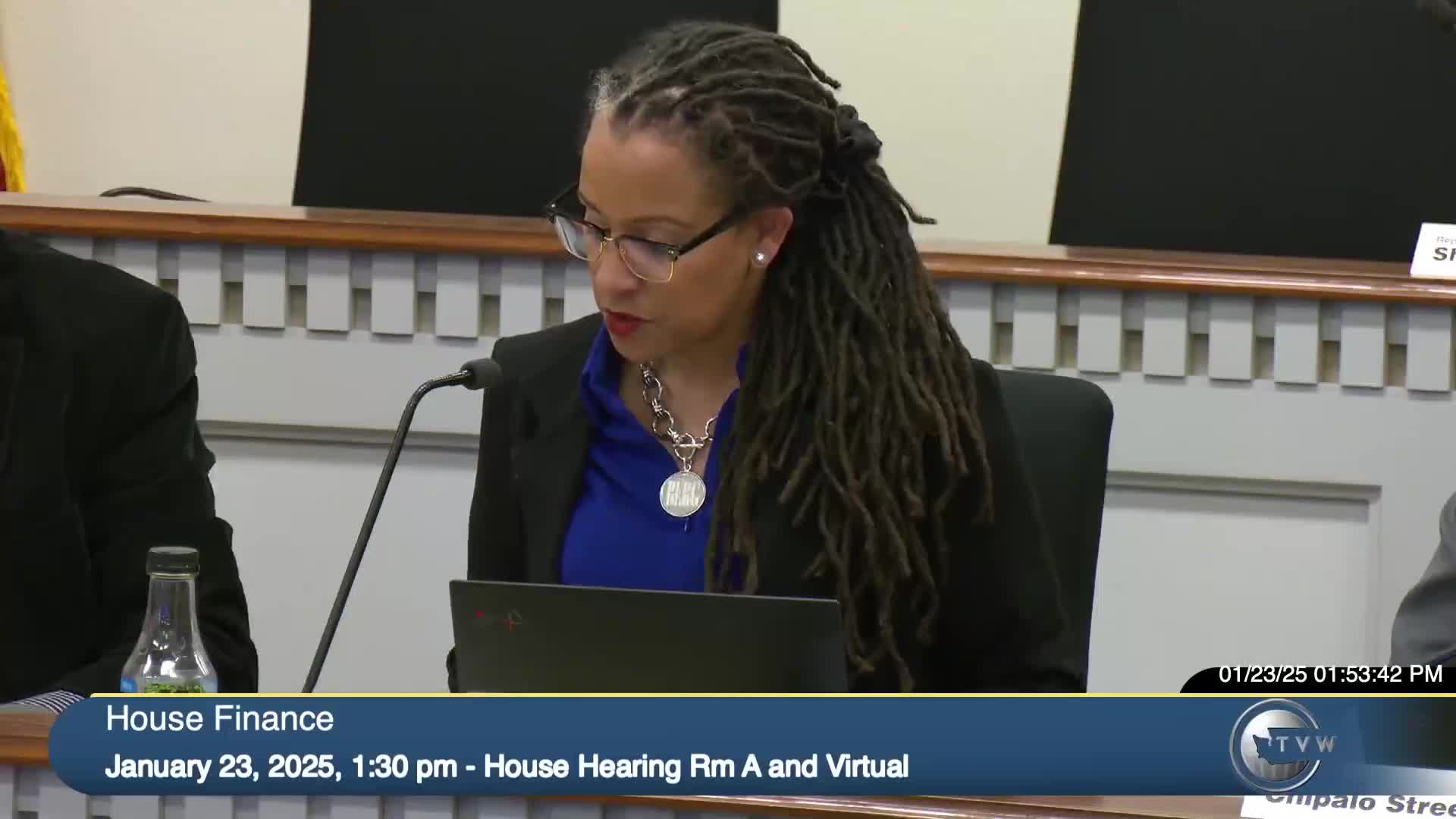Lawmakers hear bill to extend nonprofit property tax exemption to property leased for social services
Get AI-powered insights, summaries, and transcripts
Subscribe
Summary
House Finance heard testimony Jan. 23 on HB 1094, which would extend a property tax exemption so nonprofit-owned property leased for qualifying social services can qualify when the lessee is a government entity, tribe, or nonprofit.
House Finance heard testimony Jan. 23 on House Bill 1094, a bill that would expand an existing property tax exemption for nonprofit organizations so that property owned by a nonprofit and leased to a government entity, a federally recognized Indian tribe located in Washington, or another nonprofit providing qualifying social services could qualify for the exemption.
Committee staff Rochelle Harris summarized current law: property is generally taxed on its highest and best use unless a statutory exemption applies; nonprofits that own property used for character-building, benevolent, protective or rehabilitative social services may be exempt. HB 1094 would allow a nonprofit owner that leases property to eligible government or nonprofit providers to qualify for the exemption when the leased use fits that statutory description, Harris said.
Representative Amy Wallen (R-48), the bill sponsor, described a local example from her district: the Together Center in Redmond, a human services hub that owns more than two acres near transit and leases space to a range of agencies. Wallen said three partners leasing space on the Together Center campus—ARCH (regional housing entity), the Lake Washington School District’s Transition Academy, and Cascadia College—were recently found by a Department of Revenue audit not to qualify for the exemption because of the lease structures. Wallen said the bill responds to that audit finding and would allow collaborative hubs to operate without an unanticipated tax burden.
Kim Sarnicki, identified as CEO of the Together Center, testified in support. “This will allow other nonprofits who are in the lucky position to own land to be able to offer more services and bring more voices, to collaborate and lower barriers for people who are seeking services,” Sarnicki told the committee. Troy Christensen, a program staffer at Torchlight on Eastgate, and Melissa Stewart, Redmond city council member and Together Center board member, also testified in support, describing the center as a regional model and urging the committee to remove barriers to collaborative nonprofit service delivery.
King County Council member Sarah Perry testified in support on behalf of King County, saying the bill would help make services more accessible amid behavioral-health and shelter shortages in King County. Debbie Lacey, executive director of Eastside For All and a Together Center partner, and other local leaders described how ownership can stabilize nonprofit operations and help prevent displacement.
Steve Ewing of the Department of Revenue told the committee the exemption is administrable and that DOR participated in discussions about the solution. Proponents said the bill would not have a meaningful fiscal impact at the state level but would reduce unexpected tax liabilities that could undermine collaborative housing and service hubs.
The committee closed the hearing on HB 1094 after proponents’ testimony; no committee vote on the bill is recorded in the hearing portion of the transcript.
